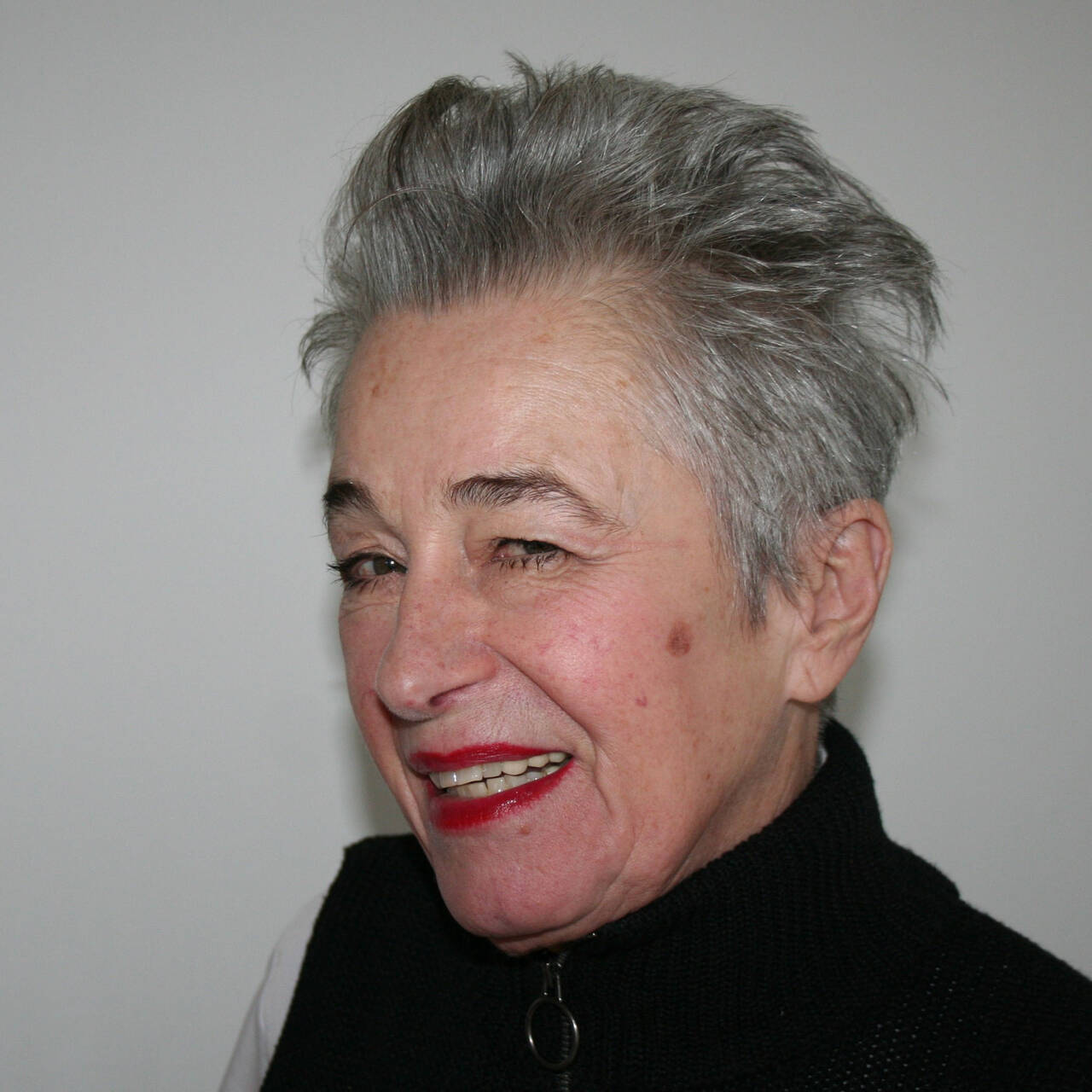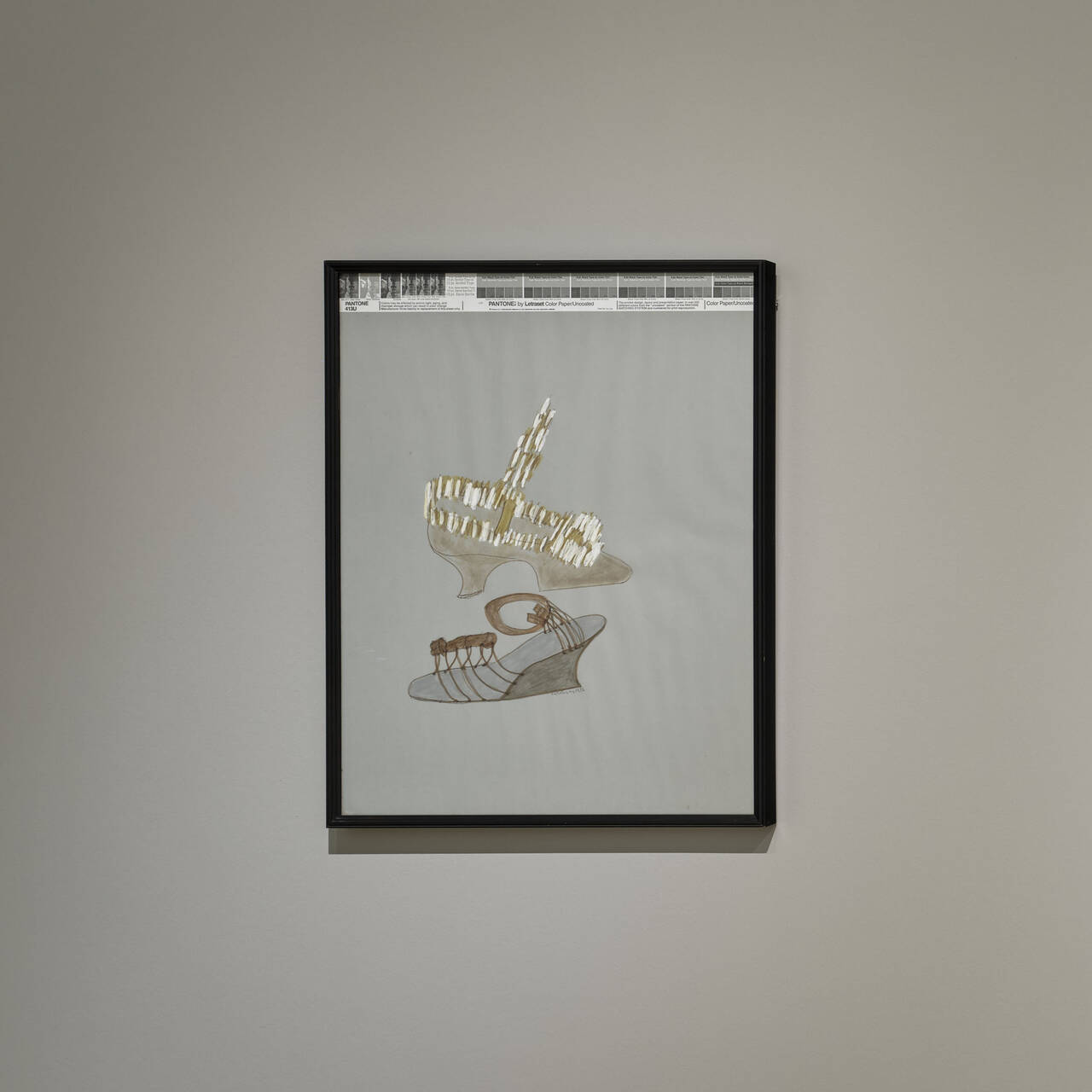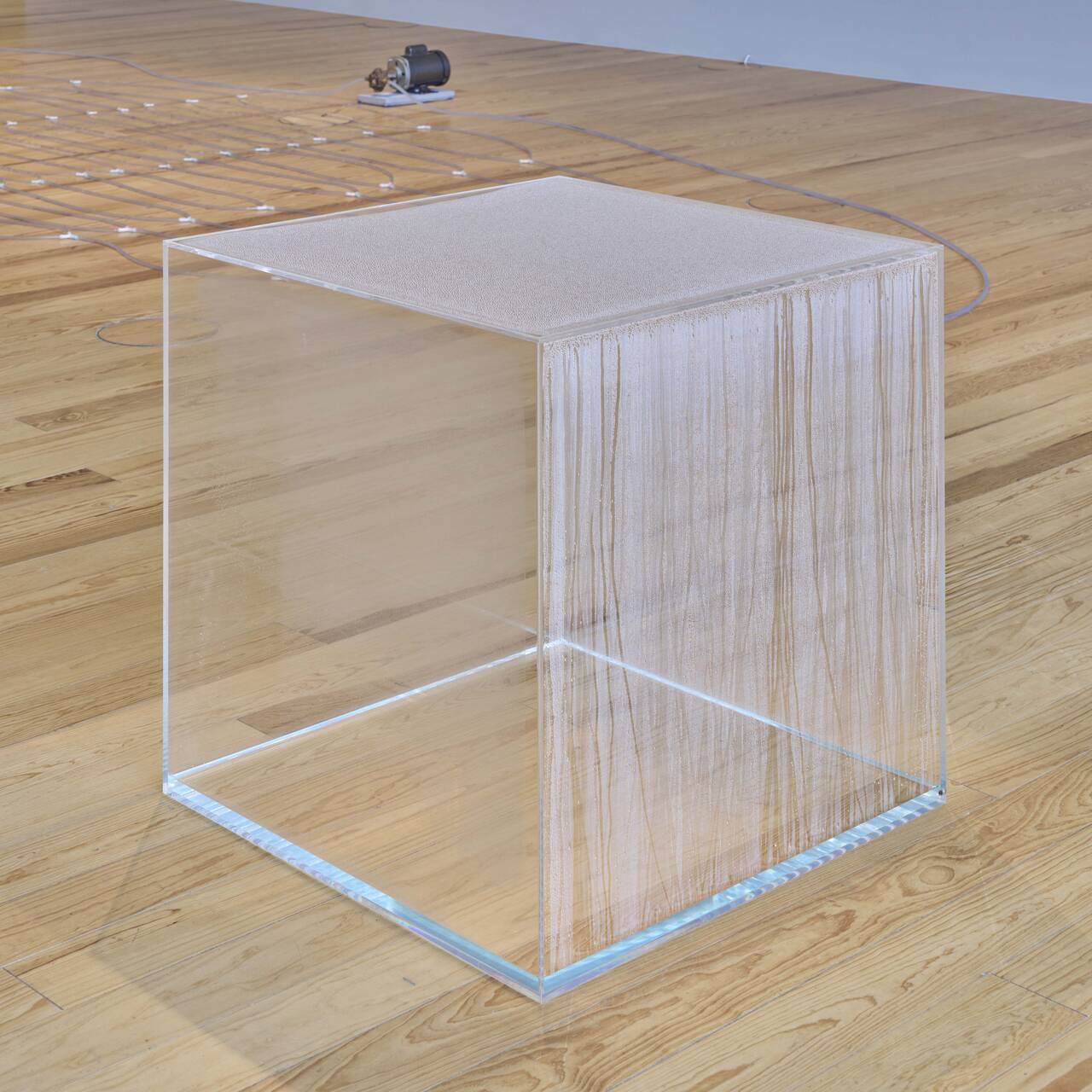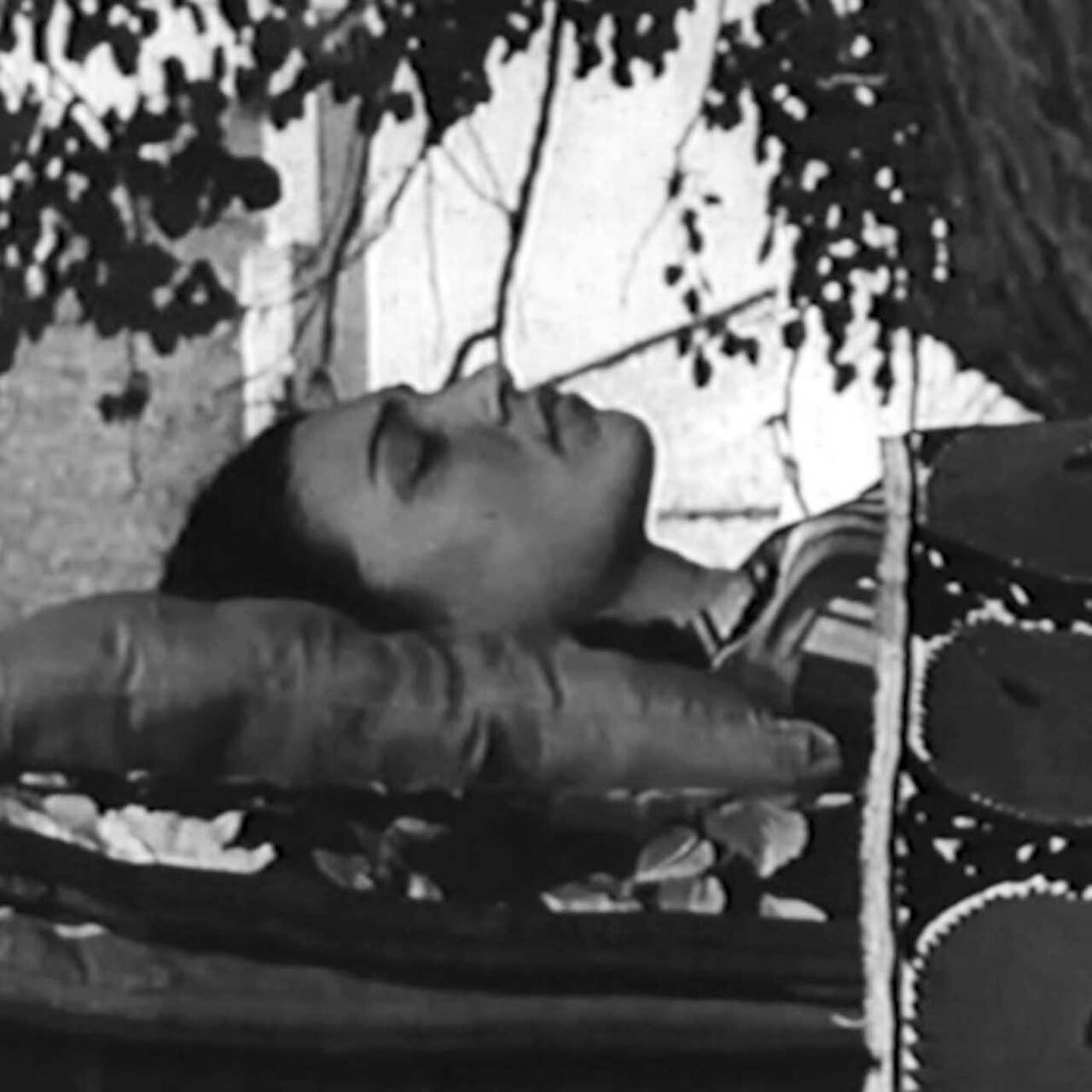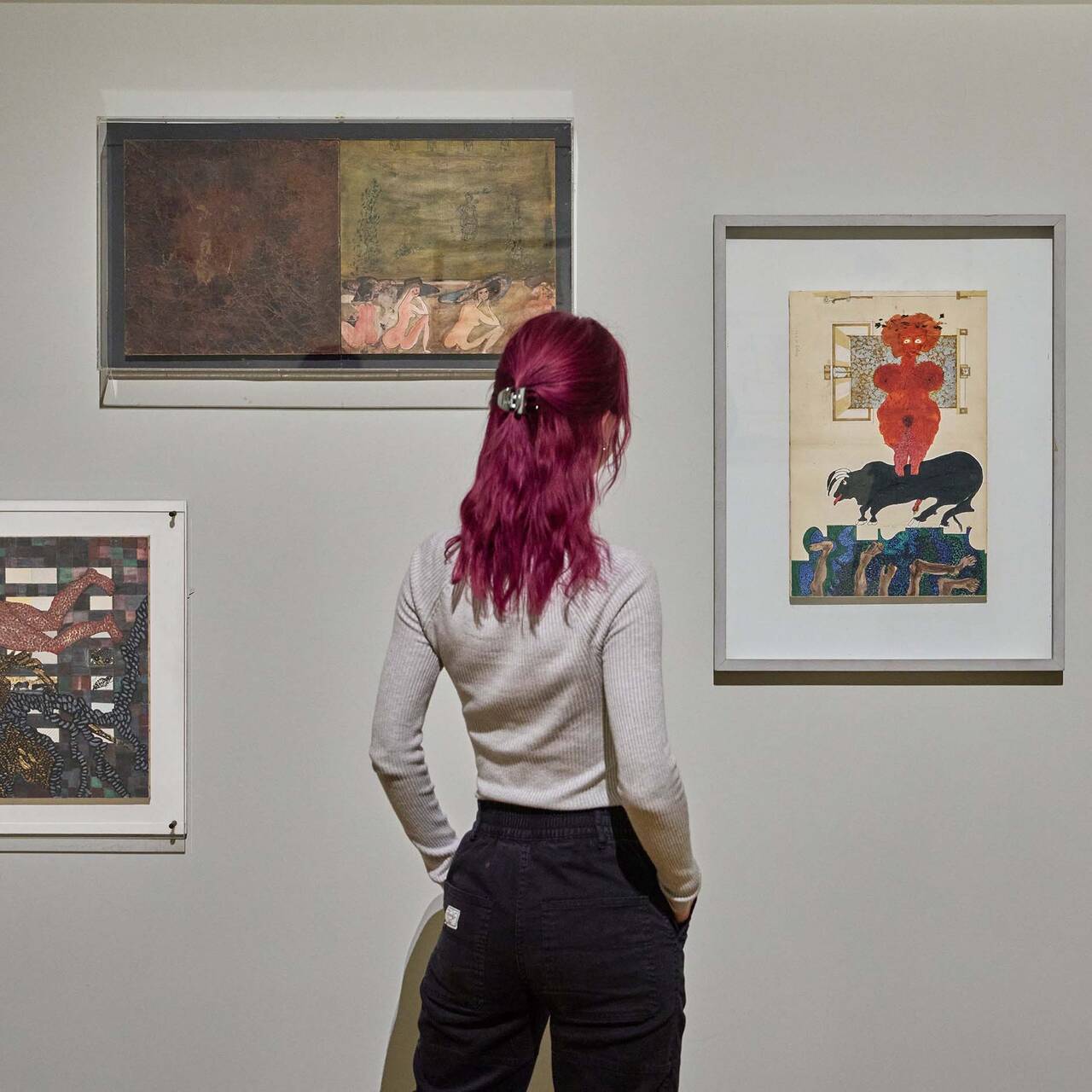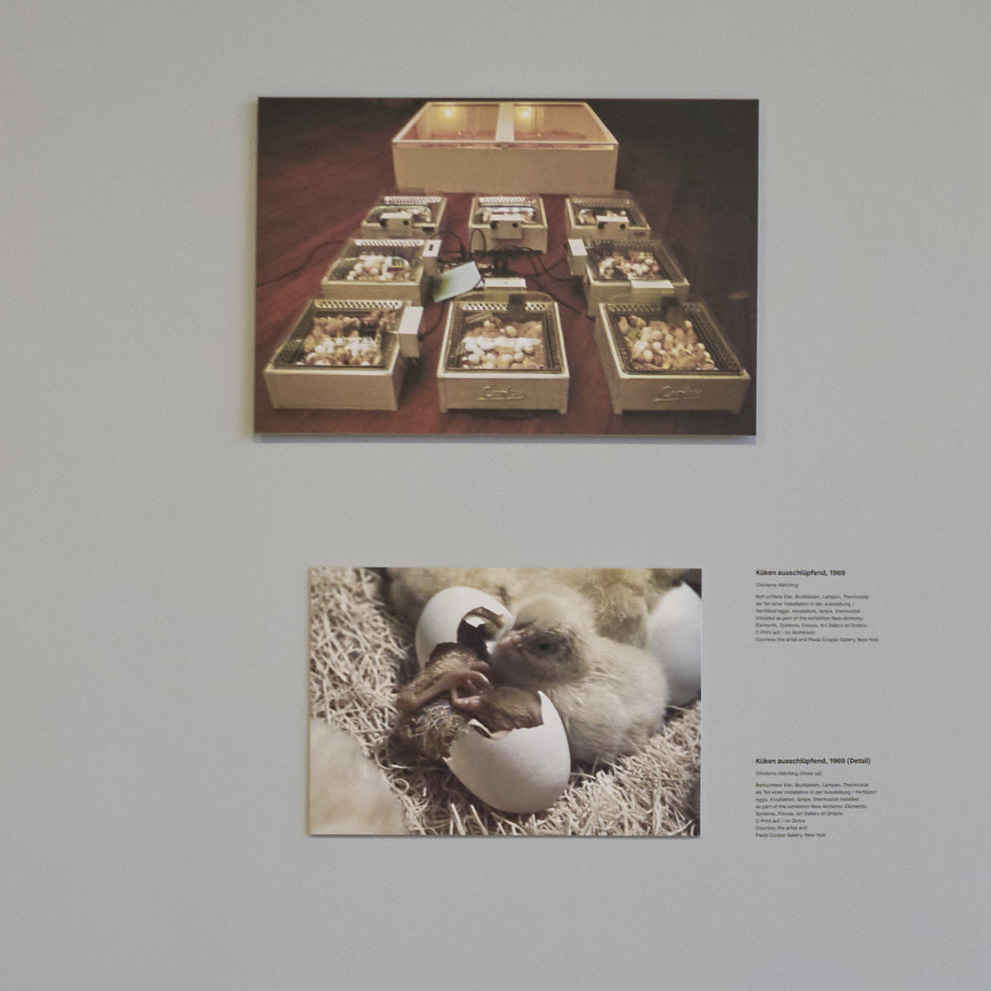Artist Bani Abidi is dedicated to the dark absurdities of everyday life. In her video work "The Distance from Here" bureaucracy takes over and waiting becomes an existential task in life.
Two old, rusty tables, an aging folding chair, a typewriter lying on the floor, and a sign reading “LEGAL DOCUMENTATION CENTRE (REGD.)” are the opening image of Bani Abidi’s “The Distance from Here”, made in 2010. The carefully staged, static objects the camera reveals could hardly be better as a way to symbolically epitomize what the protagonists have to endure in the full 12-minute piece: being at others’ mercy, having their own time stolen, and going from subject to object.
In her fictionalized documentary, Abidi stages a day in the life of visa applicants wanting to travel to another country, but who are stuck in the space between different nation states. Two security officers stoically drink coffee before more and more people gradually gather at the large, asphalted square – a forward checkpoint. They are guided through security checks and their documents are inspected, while small pop-up shops sell clip-on ties and coffee. Then they wait between two yellow lines for buses that will eventually take them to the consulate. There, however, the wait continues for the applicants, who sit in a large hall patiently longing for the moment when their number is finally called.
What does bureaucracy do to the individual?
Pakistani artist Bani Abidi has spent several years commuting between Pakistan, India, the USA, and Germany, where she has for some years now been living in Berlin. Her oeuvre is made up of video works, photographs, and multimedia installations in which she repeatedly deals with themes like state omnipotence, nationalism, and the effects of bureaucracy on the individual in the form of fictionalized documentaries, often employing a laconic, humorous approach in doing so.

In “The News” from 2001, for example, an identical event is portrayed by two newscasters from the respective nationalistic perspectives of Pakistan and India, while in the two-channel video installation “Death at a 30 Degree Angle” (2012) a local politician in an artist’s studio cannot quite decide what exactly the face of his stone statue should look like. In “An Unforeseen Situation” (2015), meanwhile, the artist satirizes identity-forging national historiography in the wake of a sporting event staged with great fanfare by the Pakistani authorities.
From stoic composure, bored emptiness to uncertain trepidation
In “The Distance from Here”, too, Bani Abidi stages the processes of officialdom with humorist undertones, as theatrical grotesque: the application itself is never shown; instead, the visa applicants find themselves in a kind of limbo from which there is no escape. Only in the faces of the people do we think we can discern their emotional states, from stoic composure and bored emptiness to uncertain trepidation. There are almost no words spoken. Instead, the soundtrack is punctuated by constant typing, beeping from body scanners, and distant traffic noise.

The hopefuls clutch their ID documents tightly to them, always clearly visible – their most precious commodity: the only thing that seems to make them actual human beings here, that gives them any legitimacy in the bureaucratic limbo. Travel – characterized in other parts of the world by excitement and comfort – results here, instead, in a complete lack of freedom and the dependence of the individual on the abstract authority of the state that is engraved on the faces of the individuals.

The second film chosen by Bani Abidi is “Divine Intervention” (2002) by Palestinian director Elia Suleiman. In a laconic-surrealistic way, the film likewise tells of borders and state supremacy, in this instance in the border region between Israel and the West Bank. In episodic, thoroughly repetitive sequences, Suleiman conjures up a bleak image of everyday life in the West Bank at the beginning, in a way that is somewhat reminiscent of the depictions in Aki Kaurismäki’s films.
Only here, the people act far more viciously towards each other than in the works by the Finnish filmmaker. At some point, the narrative shifts to a nameless man (played by Suleiman himself) who lives in Jerusalem and meets his beloved from Ramallah day in, day out in a car park at an Israeli checkpoint. The arbitrariness of the border officials, the fantasies of omnipotence of hard-hit citizens, the everyday nature of resentment and violence – all this Suleiman weaves into a bitter swan song in “Divine Intervention”, which won the jury prize at the 2002 Cannes Festival. Only the quiet affection of two people for each other can, if anything, counteract this.

